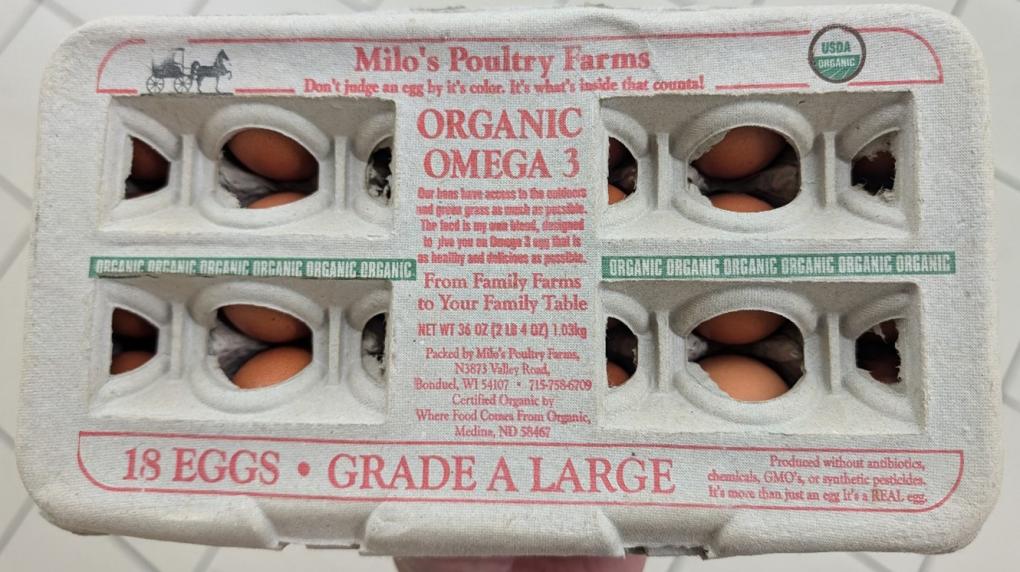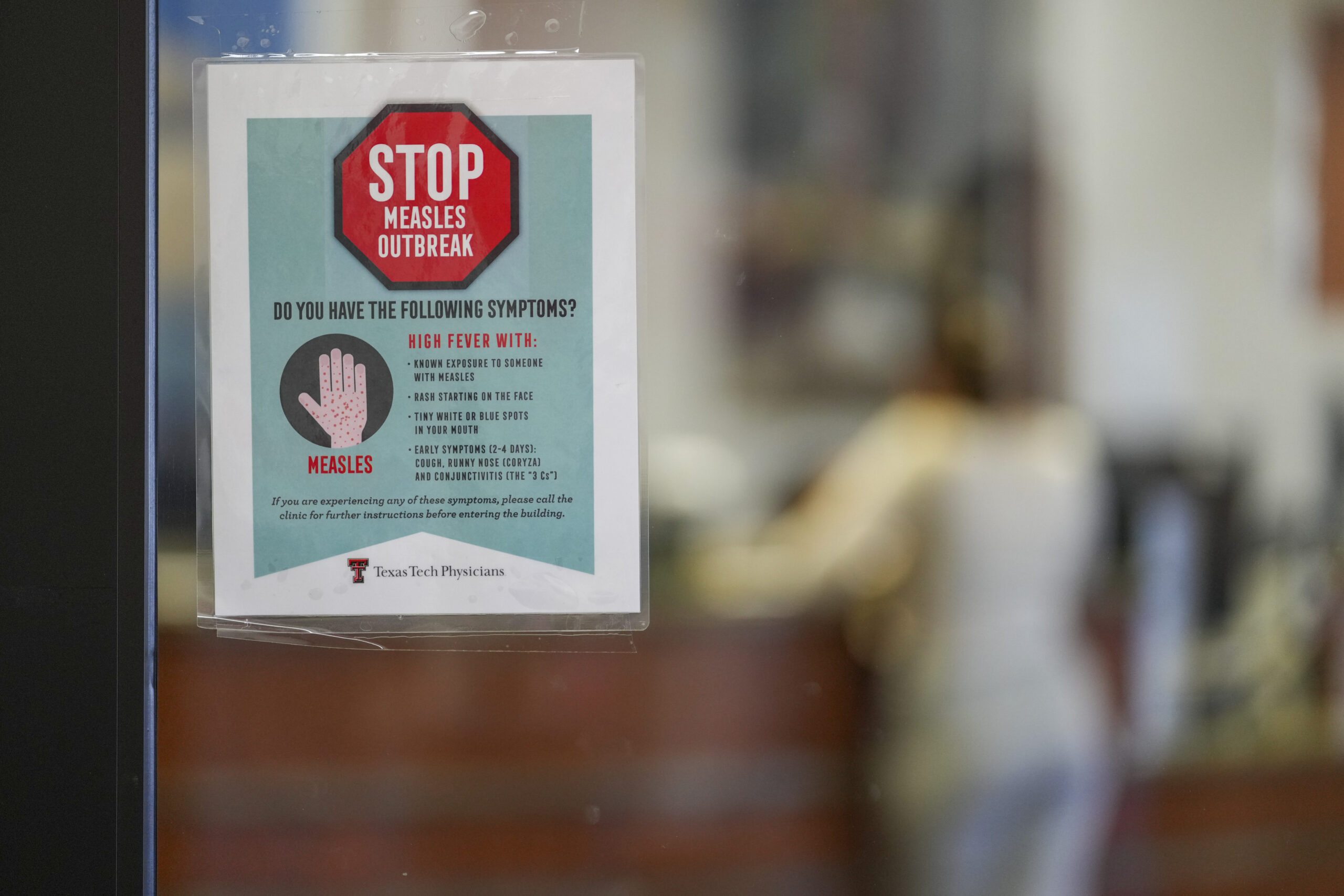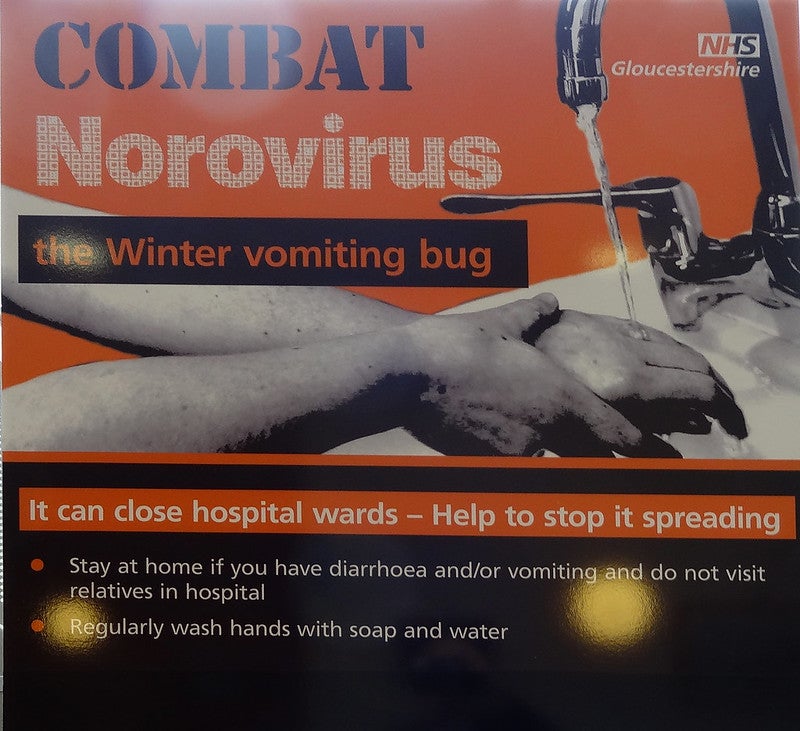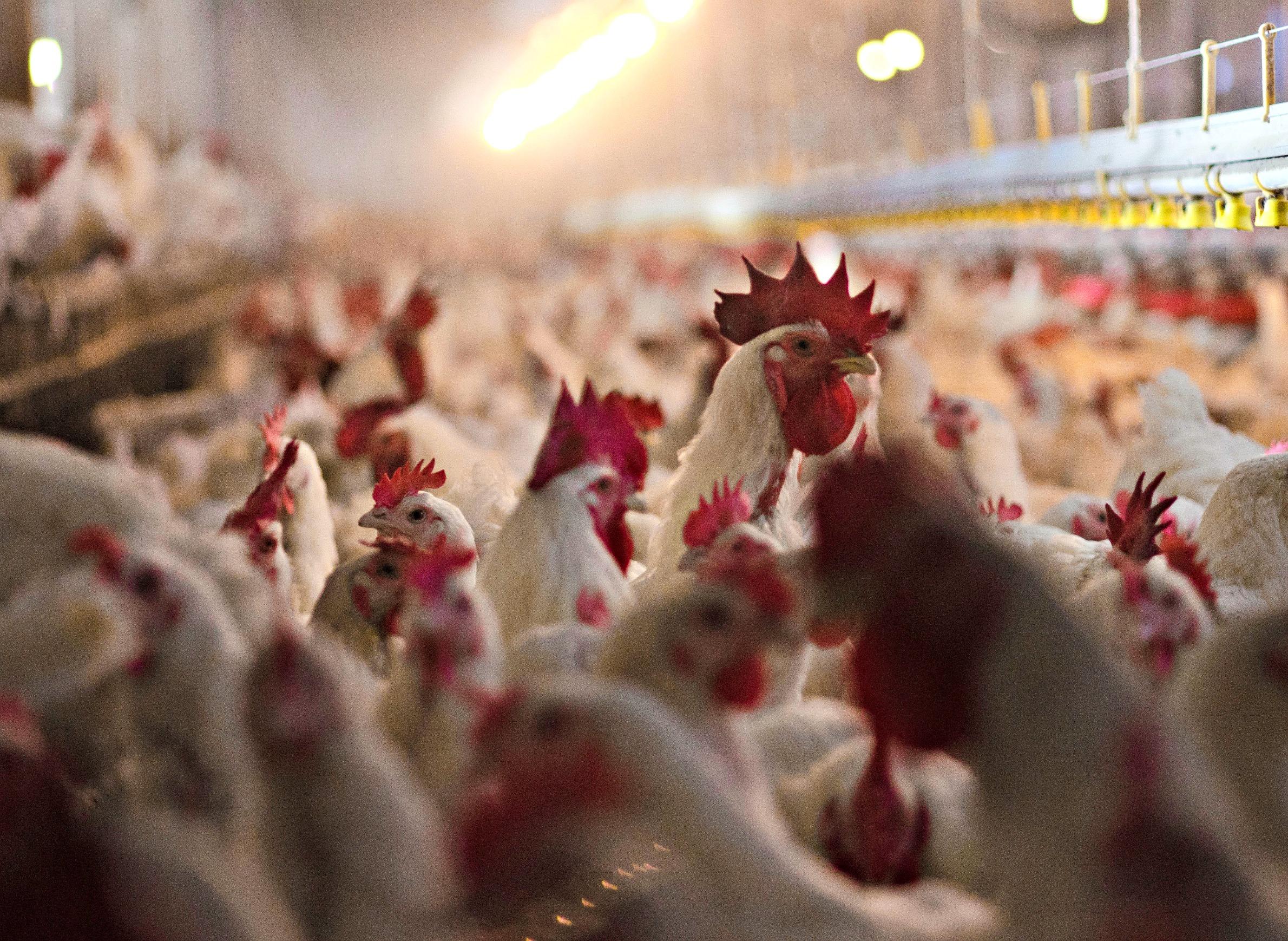State and federal health officials are warning about an outbreak of salmonella infections linked to eggs from a Wisconsin farm.
The Centers for Disease Control and Prevention identified 65 people across nine states who were infected by the bacteria, 24 of whom have been hospitalized. There have been no deaths reported.
The outbreak includes 42 people in Wisconsin, with 15 people hospitalized. A spokesperson for the state Department of Health Services said cases have been identified in several counties across the state and more cases will likely be reported.
Stay informed on the latest news
Sign up for WPR’s email newsletter.
Salmonella bacteria is typically spread through eating or drinking products contaminated with feces from an infected animal or person. Symptoms include diarrhea, fever and stomach cramps.
The Food and Drug Administration issued a recall on Friday for eggs from Milo’s Poultry Farms in Bonduel. The notice includes all eggs sold under the company’s name and the brand “Tony’s Fresh Market”. The products were sold through grocery stores and food service distributors in Wisconsin, Illinois and Michigan.

A DHS spokesperson said the agency identified three clusters of cases associated with restaurants that used the contaminated eggs. Distributors of the eggs have contacted their restaurant customers to alert them of the recall.
State health officials advise anyone who purchased the recalled eggs to throw them away. People who ate the recalled eggs and are experiencing symptoms of Salmonella should contact their health care provider.
While the earliest infection happened in late May, CDC data shows a large number of cases happened at the end of July and in August. More recent illnesses may not yet be reported because it takes three to four weeks to confirm a case, according to federal officials.
Symptoms of salmonella infection start, end quickly
The actual number of infections is likely much higher than the reported numbers, according to the CDC, because many people recover without medical care.
Dr. Jeff Pothoff, emergency medicine physician for UW Health, said symptoms of a salmonella infection start within eight hours to three days of consuming a contaminated food.
“Some of the early symptoms are going to be fever, sometimes pretty high like 102 degrees or higher,” Pothoff said. “You’ll start developing abdominal cramps, and then nausea and vomiting. The vomiting can be pretty awful and the diarrhea likewise is pretty rough.”
Pothoff said the primary medical concern for most infected people is dehydration. But he said infants and people who are age 50 and older are at risk for developing more severe disease caused by the bacteria getting into the bloodstream and infecting other organs like the heart.
The CDC warned the current outbreak of Salmonella may be difficult to treat because lab testing showed the bacterial strain is resistant to two common antibiotics. Pothoff said this type of resistance is a major concern for the health care system, and many providers will not prescribe antibiotics to people with Salmonella unless they are severely ill.
“Unfortunately, whether it’s salmonella or other organisms, we are seeing more antimicrobial resistance,” he said. “That’s the reason that a lot of times when you go to the doctor for a cold or whatever it is, they don’t want to give you antibiotics.”
Pothoff said after symptoms subside, the bacteria will continue to be in an infected person’s feces. He suggests anyone who has experienced diarrheal illness be diligent about handwashing and avoid contact with people who are at risk of severe disease.
New poultry practices have made salmonella outbreaks more rare
The FDA recall notice said Milo’s Poultry Farms has stopped production and distribution, and will undergo sanitization and appropriate testing.
Ron Kean, poultry specialist at the University of Wisconsin-Madison, said many farms will choose to cull an infected flock after a recall to ensure the bacteria does not continue spreading.
Poultry are typically infected through contact with feces from wild birds or rats, according to Kean. He said the bacteria is spread through a laying hen’s feces or it can be present in the bird’s ovary.
He said salmonella outbreaks in eggs have become fairly rare compared to previous decades.
“Most laying hens, I would say, are vaccinated against salmonella in the US,” Kean said. “There is generally testing for salmonella at certain times in the flock’s life, and so that has helped prevent some (outbreaks) as well.”
He said more on-farm sanitation as well as good kitchen hygiene practices have also made egg-related salmonella infections less common in the U.S.
The bacteria is often linked to other types of food products. So far in 2024, outbreaks in Wisconsin have been associated with charcuterie meats and basil.
Wisconsin Public Radio, © Copyright 2025, Board of Regents of the University of Wisconsin System and Wisconsin Educational Communications Board.





